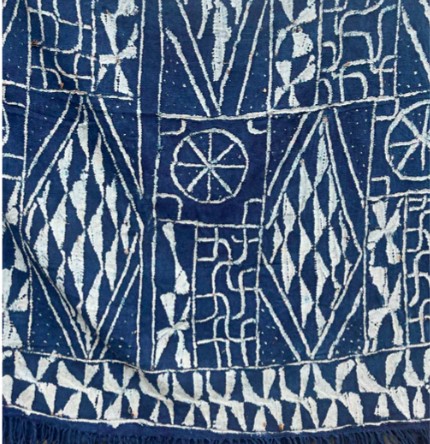Introduction
The Bamileke tribe is one of the most influential and culturally rich ethnic groups in these countries, Cameroon and Central Africa Republic. This tribe is known for their entrepreneurial spirit, artistic traditions, and elaborate royal institutions, the Bamileke people play a vital role in the social and economic life of Cameroon. In this post we will explores their history, origin, food, religion, festivals, culture, marriage customs, and diaspora presence.
History of the Bamileke Tribe
The Bamileke tribe are part of the larger Bantu ethnic family and are believed to have migrated from the north of the present-day Cameroon or even Egypt/Sudan region, around the 11th century. They settled in the Western Highlands of Cameroon, particularly in the Grassfields region.
Therefore, their history is marked by the establishment of powerful kingdoms known as chiefdoms (fondoms), each ruled by a Fon (king). These kingdoms maintained complex political, spiritual, and social systems that ensured peace, stability, and identity for centuries.
Also Read: Oromo History
Origin and Ethnic Identity
The Bamileke tribe traced their origin to the Tikar people of the Adamawa Plateau. According to oral traditions, the migration was triggered by conflicts and invasions, which pushed them southward into the forested highlands. Once settled, they developed distinct but related dialects and customs under different Fondoms (chiefdoms) like Bafoussam, Bandjoun, Dschang, and others.
Though the Bamileke are divided into various clans and sub-groups, they share similar cultural values, traditional structures, and language roots.
Traditional Food of the Bamileke
Like any other tribes who are known with special foods, Bamileke are not left out with cuisine that is hearty, rich, and often plant-based.
Popular dishes in Bamileke tribe include:
- Koki: A steamed pudding made from ground black-eyed peas and red palm oil.
- Fufu and Njama Njama: Cornmeal dough served with sautéed huckleberry leaves.
- Achu soup: Yellow soup made with spices, served with pounded cocoyam.
- Poulet DG: Chicken cooked with vegetables and plantains—a delicacy.
Their food also reflects both traditional agricultural practices and a love for flavor.
Religion and Beliefs
Traditionally, this tribe practice ancestor worship and believe in a supreme creator and spiritual intermediaries. Their belief system includes animism, rituals, and sacred symbols, particularly the leopard, which represents power and protection.
Today, many Bamileke people have embraced Christianity, especially Catholicism and Protestantism, though many still maintain traditional beliefs alongside modern faiths.
Festivals and Celebrations
The Bamileke tribe are known for their vibrant and symbolic festivals, such as:
Ngouon Festival (Bafoussam): A major cultural celebration held every two years to honor the Fon (king) and unite the community.
Lela Festival (Bangwa people): A celebration of ancestral spirits with music, dance, and masquerades.
Funerals and initiation ceremonies: These are highly elaborate and celebrated with music, dance, and traditional attire.
Festivals often include masked dances, drumming, and public rituals that reinforce cultural values and history.
Culture and Arts
The Bamileke culture is incredibly rich in oral traditions, wood carving, mask making, beadwork, and traditional architecture.
Key cultural features of Bamileke include:
Masquerades: Used during rituals to represent spirits, ancestors, or moral teachings.
Beaded Artifacts: Kings and nobles wear beaded hats, thrones, and garments symbolizing status and power.
Totem Animals: Especially the leopard, elephant, and buffalo, which signify power, wisdom, and spiritual connection.
Architecture: Round huts with conical roofs and decorated compounds reflect their craftsmanship.
Their chieftaincy system is central, with every Fon (king) playing a spiritual, political, and judicial role in society within their territory.
Countries Where the Bamileke Are Found
While primarily based in Cameroon, especially in the West Region, the Bamileke tribe have a wide diaspora. They can also be found countries like:
Nigeria (especially in border towns) with Cameroon
- Chad
- France
- United States
- Canada
- Germany
Due to their entrepreneurial skills, many Bamileke have migrated and established successful businesses in and across the globe.
Marriage Traditions
Marriage among the Bamileke is a sacred and communal affair, often involving:
- Bride price (dowry) negotiations between families.
- Traditional engagement (knock-door ceremony) called ‘Nku nda’, where the groom formally asks for the bride’s hand.
- Gift exchange, which often includes drinks, foodstuffs, livestock, and clothing.
- Wedding ceremonies that blend traditional customs with modern Christian weddings.
- Polygamy, though traditional, is less common today but still practiced in some areas.
Marriage strengthens not only families but entire communities.
You Can Also Read: Understanding Percentage
Conclusion The Bamileke tribe is a living testimony to Africa’s cultural diversity, resilience, and heritage. From their powerful kingdoms to their spiritual depth and economic impact but the Bamileke tribe continue to influence Cameroon and the world. Their story is one of tradition, innovation, and pride.
Action
How do you stay connected to your cultural identity? You can share your story using #MyCulturalCode and also comment below so as to keep our culture heritage alive! Let built ties through cultures. Also Visit our YouTube Channel: KunzaarChannelsTV through @kunzaarchannelstv to watch the best of cultural heritage.

